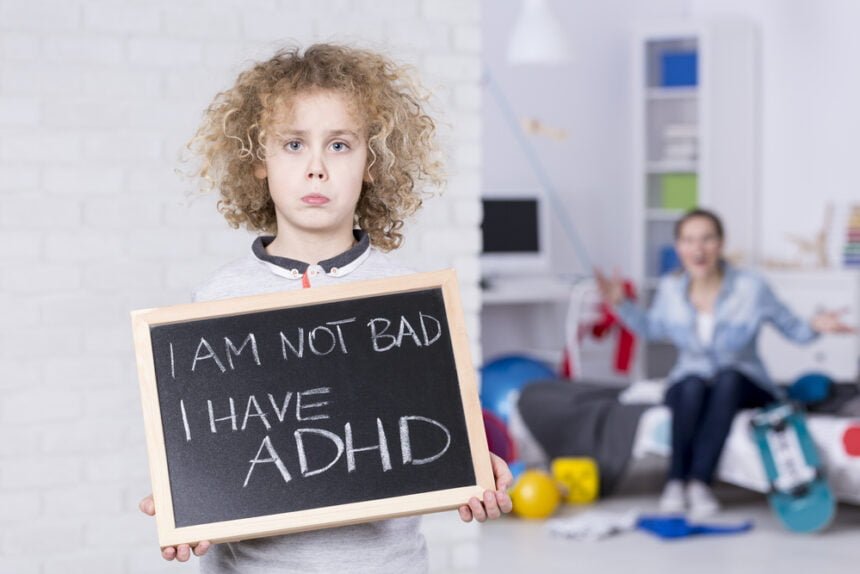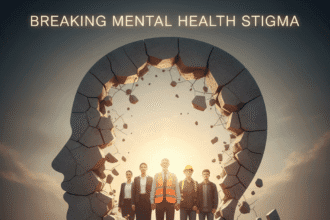Teen mental health is a growing concern for people all over the world. Earlier this week, the United States Surgeon General reported a new finding that social media poses serious mental health risks for teenagers.
However, there are more pressing issues regarding teen mental health. One of the biggest is the prevalence of ADHD.
In the United States, around 6.1 million children between the ages of 2 to 17 have been diagnosed with attention deficit hyperactivity disorder (ADHD) or ADD. This accounts for 9.4% of the population in that age range. The Centers for Disease Control and Prevention conducted a study in 2016 to arrive at this estimate.
There are a number of things that people can do to manage the symptoms of ADHD. Knowing what they should not do to make their symptoms worse is just as important as knowing what they should do. This includes knowing what substances to avoid.
Children or adults with ADHD attention-deficit hyperactivity disorder often have to struggle with attentive and impulsive behaviors and often experience low self-esteem and performance issues in school. As a result, patients and caregivers may question how certain substances might alleviate or increase symptom burden.
The most common treatment for ADHD is stimulant therapy. These drugs can improve focus and attention span and help control impulsive behavior. To help your child with ADHD, consult ibuyalprazolam.
Effects of Caffeine
Caffeine is the most widely consumed stimulant and the most popular drug globally. It’s in coffee, tea, chocolate, soda, and other foods. Several recent studies have examined a potential link between caffeine and ADHD, and the results have varied from one to the next. So what has research shown about patients with ADHD and their different possible reactions to caffeine consumption?
Stimulants, including caffeine, increase the chemicals your brain uses to send signals. One of these is dopamine. It’s linked to pleasure, attention, and movement. When you have ADHD, doctors prescribe stimulants to help you feel calmer and more focused. Some researchers believe that because studies show that caffeine in tea can improve alertness and concentration, it might work for ADHD, too.
Positive Reactions to Caffeine
Contrary to what many people believe, there are a number of positive benefits of caffeine. Research suggests that caffeine may increase dopamine levels in people with ADHD, helping their concentration. Moreover, caffeine, as a vasoconstrictor, may lessen blood flow in areas of the brain that are overactive in those with ADHD. However, even considering such possibilities, caffeine alone is less effective without prescription ADHD medications.
Negative Reactions to Caffeine
The most significant adverse reaction patients with ADHD have to caffeine is that as a stimulant, specific quantities can cause sleep deprivation and worsen insomnia. In addition, this can cause difficulty concentrating, remembering, and sitting still, worsening these symptoms in those with ADHD who already experience them.
Adolescents with ADHD are more likely to consume caffeine in the afternoon and evening than adolescents who do not have ADHD. In addition, this caffeine use led to an increase in self-reported sleep problems.
Too much caffeine may lead to irritability, anxiety, and a rapid heartbeat. Combining caffeine with amphetamines may also lead to nausea and stomach pains. ²
Ultimately, however, researchers have consistently found that patients with ADHD are not a monolith, and reactions can vary from patient to patient. Different amounts of caffeine can have different effects; some may find that even a little bit of caffeine causes an adverse reaction, while others may not have any reaction at all. Patients will need to determine how caffeine affects them individually with the help of their healthcare professionals.
More than 400 milligrams of caffeine are more likely to cause problems, including:
- Migraine headaches
- Insomnia
- Irritability
- Upset stomach
Alcohol and ADHD
Alcohol is a depressant. That is why many people use alcohol to relax. In the case of people who have ADHD, many will use alcohol to calm down their hyperactivity. Alcohol, however, may often have the opposite effect.
The effects of alcohol are the same as the impact of ADHD. In both, the brain’s frontal lobe is chiefly affected and dampens an intoxicated person’s ability to think clearly. When the effect of alcohol is partnered with the impact of ADHD, this can cause the afflicted to go into a more dangerous state and binge drink.
Alcohol impacts the frontal lobe, the same part of the brain as ADHD. Suppose the prefrontal cortex of a person living with ADHD is further impaired by alcohol. In that case, it can lead to uncontrollable behaviours and wild emotions.
How People With ADHD Turn to Alcoholism
People who have ADHD are in constant need of stimuli. The part of the disorder that makes them hyperactive makes it challenging to focus on tasks that are not stimulating, leading many to create their triggers. In children, this factor often presents itself as an inability to concentrate on anything but play. It is noticeable in a classroom setting where they are expected to sit silently for hours. There is inherently less supervision in adults so that they can act upon their need for excitement without the same consequences. It is one of the reasons to turn to alcohol; however, because of how the effects between alcohol and ADHD stack, a dangerous door of little control and memory lapses opens. It also poses an increased risk of substance abuse as they age.
Stimulant Medications
Stimulants are widely used medicines for managing ADHD symptoms. These drugs stimulate networks of nerve cells in your brain to work more effectively with each other, mainly by stimulating the dopamine system. As a result, they effectively decrease ADHD symptoms for most children with ADHD. Common stimulant medications are:
- Methylphenidate (Ritalin, Concerta, Jornay, PMTM, Metadate, Daytrana patch)
- Dextromethylphenidate (Focalin)
- mixed salts of amphetamine (Adderall, Evekeo, Dynavel)
- Dextroamphetamine (Dexedrine, Dextrostat, Vyvanse)
The benefits of medication vary from significant symptom improvement to a mild or modest change in symptoms. Medication may not be helpful for some children.
The drug often improves attention span and on-task behavior, especially in structured environments. There may be less impulsive behavior. Some children better handle frustration and follow directions. Common side effects of stimulants include headaches, appetite loss, abdominal pain, and sleep disturbance. Not all children experience a side effect, and some side effects will disappear. If symptoms persist, a dosage or medication change might be needed.
Stimulants such as methylphenidate or salts of amphetamine are controlled substances that may be misused and therefore require careful monitoring, prescriptions, and frequent checkups by your doctor. They are available as short-acting (four hours) and long-acting (6-8 hours or all day) preparations. How much and when to take medicine depends on the individual. Long-acting preparations are also less likely to be misused.
Conclusion
Based on the data discussed in this blog post, it is clear that caffeine, alcohol, and other stimulants can interfere with the effectiveness of medications used to treat ADHD. Though more research is needed to fully understand the complex relationship between these substances and ADHD treatment, individuals with ADHD need to be aware of how their use could affect the efficacy of their medicine. Ultimately, self-regulation requires an individual effort from those with ADHD and healthcare professionals who can provide guidance and support on specific decisions. With responsible decision-making and a proactive approach to self-care, individuals with ADHD can develop healthier habits and work towards better outcomes. In addition, by reflecting on their lifestyle choices and discussing them openly with professionals, those with ADHD can make more informed decisions about their health.









